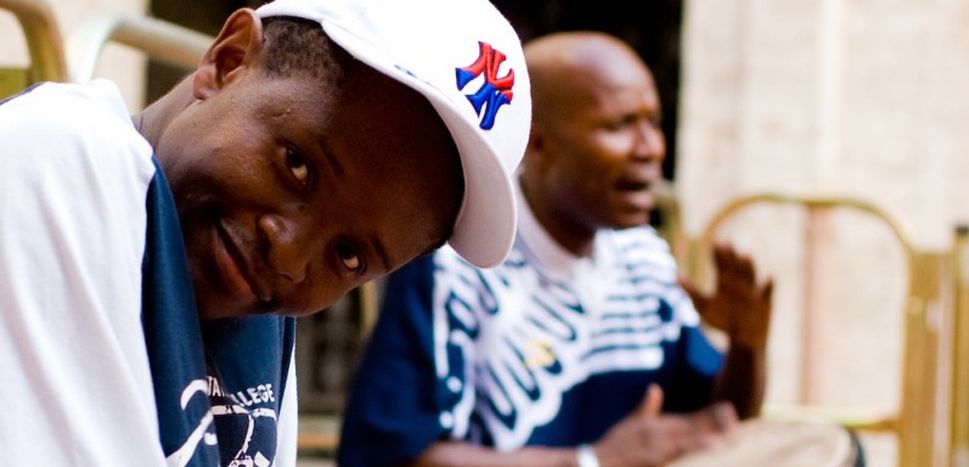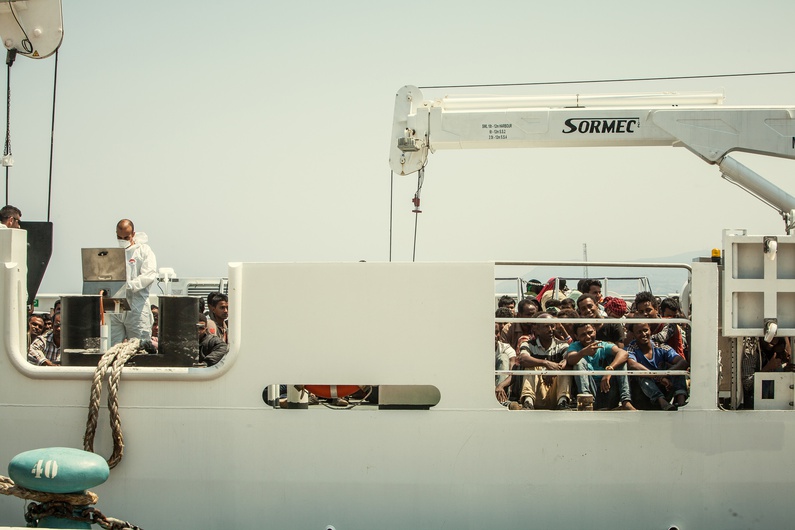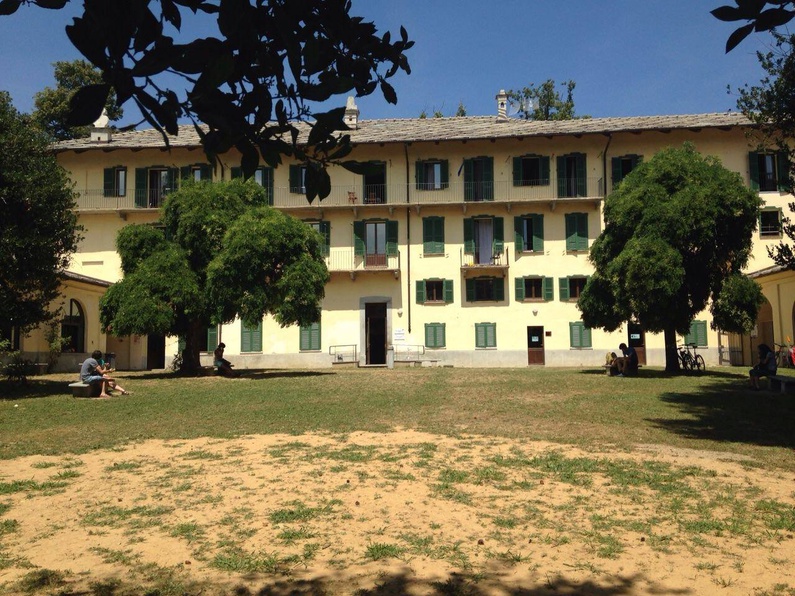
Giving refugees the tools to adapt: the Waldesian Church model
Published on
Translation by:
Giacomo FracassiSince 2011, in the province of Turin there has been a group proposing a new model of integration for refugees, based on language courses, traineeships and cultural seminars: the Waldesian Church. We interviewed Debora Boaglio, the head of the reception project.
Integrating and welcoming migrants are two topics at the top of the European Union's agenda. Some Member States like Hungary go against the ideals behind the Schengen area, by building walls or throwing smoke, while in Brussels the EU discusses how to divide the burden of refugees among all the Member States.
Italy and the southern States are often the first port of call for migrants trying to enter the EU, even though their aim is to reach other states. In a gloomy landscape of intolerance and resentment, there are organisations that, despite their small size, offer an integration model that goes beyond simply aid, by also planning paths for work assimilation.
 The Waldesian Diaconate is the religious body that coordinates the the reception activities of the Waldesian Church, and has been putting forward since 2011 a series of projects aimed at migrants and asylum-seekers. We interviewed Debora Boaglio, spokeswoman of the project initiated inside the SPRAR project (ed. Sistema di protezione per richiedenti asilo e rifugiati aka the System of Protection for Asylum Seekers and Refugees, established by the Italian Home Office).
The Waldesian Diaconate is the religious body that coordinates the the reception activities of the Waldesian Church, and has been putting forward since 2011 a series of projects aimed at migrants and asylum-seekers. We interviewed Debora Boaglio, spokeswoman of the project initiated inside the SPRAR project (ed. Sistema di protezione per richiedenti asilo e rifugiati aka the System of Protection for Asylum Seekers and Refugees, established by the Italian Home Office).
cafébabel: Which projects are currently aimed at migrants?
Debora Boaglio: Right now, the Waldese Diaconate has some welcoming projects for asylum seekers, called CAS, centres of special reception (centri accoglienza straordinaria, translator's note), that involve also the Prefecturate and the SPRAR. The projects consist of some guaranteed minimum service like cultural-linguistic mediation; basic needs (clothes, food); orientation and access to the area's services. This also includes professional (re)training, guidance and support for work placements, but also accomodation and social integration. Legal protection, psychological, social and health care is guaranteed, together with Italian language courses, and obtaining a middle school diploma.
The aim of the social workers is to implement work strategies and methodologies that will foster the empowerment of the recipients and will support the the reconstruction of their paths to autonomy here in Italy. Thus, We try to avoid excessive aid approaches towards them and we commit to do everything that is possible during the period of reception to make these people acquire the right instruments to build their own livelihood here in Italy.
Precisely based on these thoughts, we prefer receiving refugees in small groups, in apartments, in the centre of towns, with 4 or 6 places inside, and where recipients could manage the majority of their daily needs with full autonomy, from meal preparations to cleaning etc).
To support the integration process, we give extreme attention to Italian language lessons and professional training, helping them get back to work (via traineeships, work placements) and when possible, volunteering in the region.
 In order to carry out a good job, it's crucial to have a strong network within the area in which the reception project is located. To be more precise: 26 people have been received in the towns of Torre Pellice and Luserna San Giovanni (in the province of Turin); 14 in the city of Turin; 30 people were received in the towns of Pomaretto, Persoa Argentina, Villar Perosa and San Germano Chisone, while 54 were taken in by Vittoria, in the province of Ragusa in Sicily.
In order to carry out a good job, it's crucial to have a strong network within the area in which the reception project is located. To be more precise: 26 people have been received in the towns of Torre Pellice and Luserna San Giovanni (in the province of Turin); 14 in the city of Turin; 30 people were received in the towns of Pomaretto, Persoa Argentina, Villar Perosa and San Germano Chisone, while 54 were taken in by Vittoria, in the province of Ragusa in Sicily.
cafébabel: How do migrants arrive in these structure?
Debora Boaglio: For the SPRAR projects, the Home Office and the central office send refugees to us. For the projects with the Prefecturate, it's the prefecturates themselves who alert us.
cafébabel: What are the main difficulties that you meet?
Debora Boaglio: Professional integration of people is the hardest challenge inside this project. Effectively the reception period has a very precise time limit (6 months from the date of notification of international protection by police headquarters) and it's not always possible to end the social and job integration process with success.
cafébabel: What do you think of the Italian reception system?
Debora Boaglio: Italy doesn't have great experience in the field of taking in migrants. Thus, there is still plenty to do. It is necessary to better manage the system of reception to avoid constantly working in an emergency situation. To a certain degree, the "emergency" that we had in 2011 become structural in this sector.
cafebabel: There are growing episodes of intolerance and racism, like in the cases of Rome and Treviso (where demonstrators fought against the arrival of new migrants, leading to clashes and blazes in front of the reception centre).
Have you ever ended up in a similar situation with the locals? How is it possible to prevent and resolve these episodes?
Debora Boaglio: We have never experienced such things in our reception projects. Anyway, it is a topic to which we dedicate much attention and we believe it's really important to inform the region, organise events of awareness and try to favour more and more gatherings to achieve mutual acknowledgement. In the last few years, we held many activities, organised many public events, such as seminars in schools, social gatherings (like dinners), seminars on the topic, and volunteering - as a way of "giving back" to the regional community.
Translated from L'accoglienza oltre l’assistenzialismo: il sostegno della Chiesa valdese



